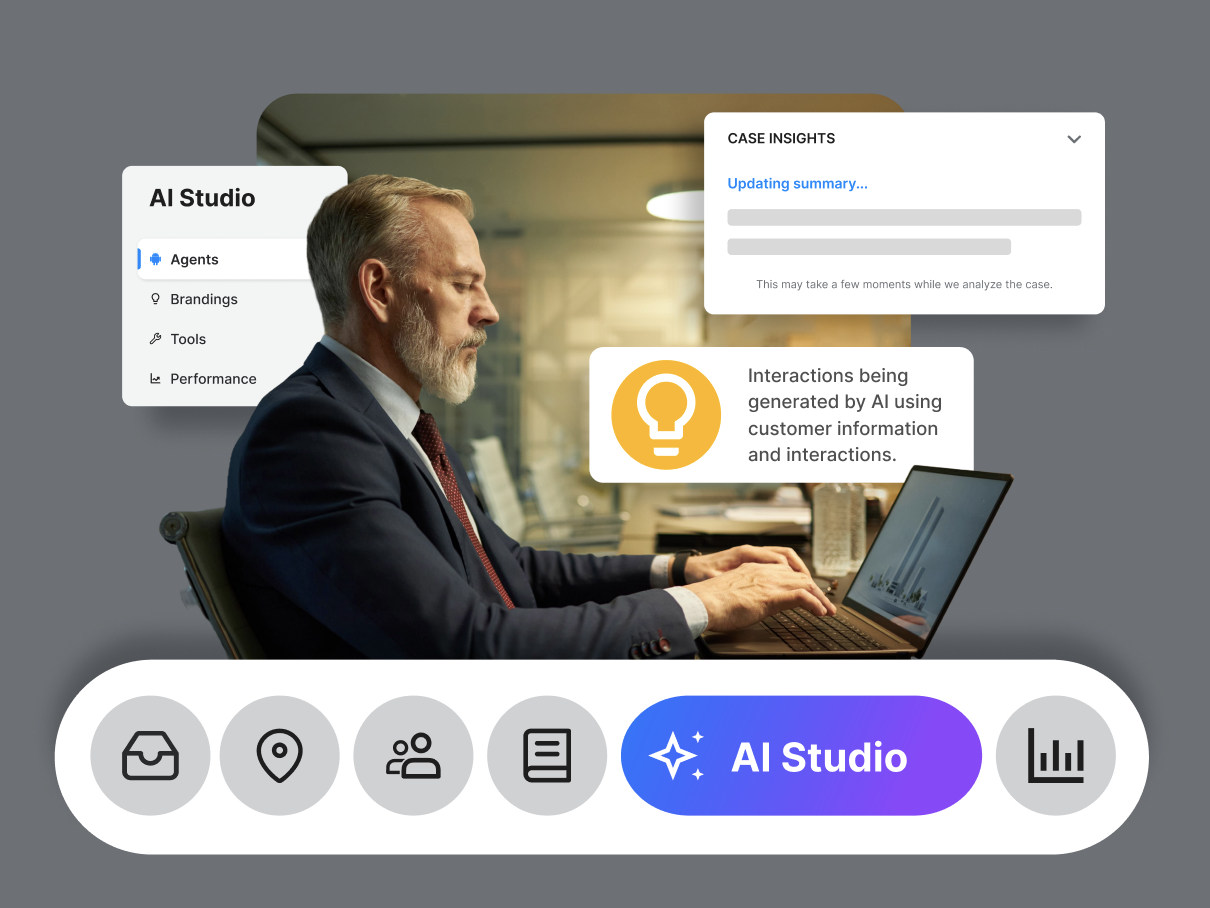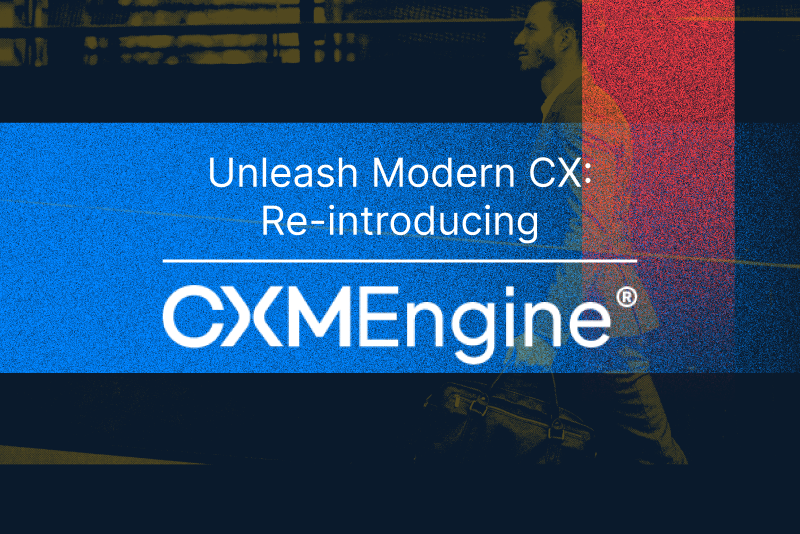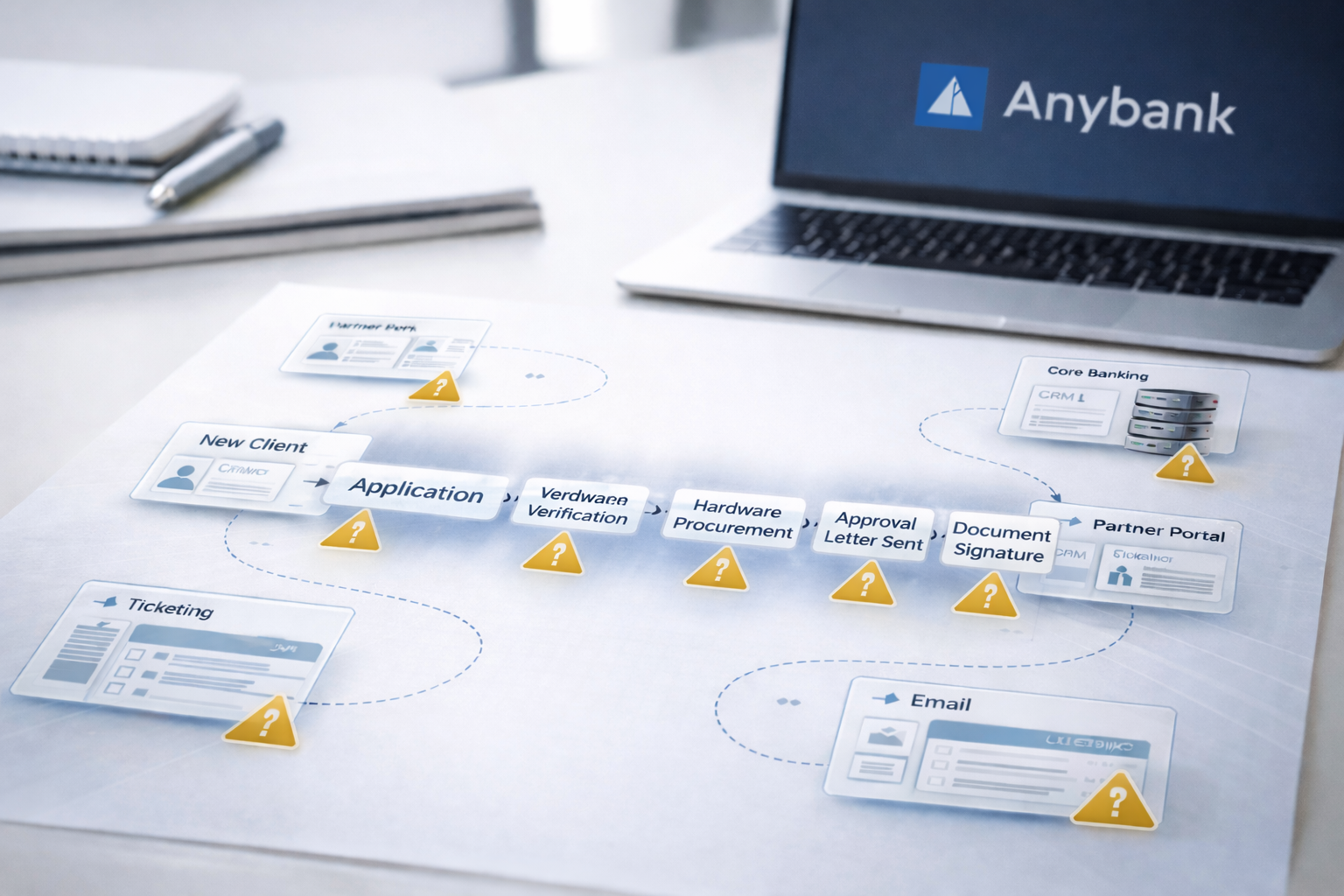Introduction to CRM and Client Support Software
According to recent studies, 86% of customers are willing to spend more for a better customer experience. This is why it is critical to find innovative technologies that work together, such as client support software with CRMs (customer relationship management), to enable an excellent CX (customer experience). Many people believe a CRM and client support software are the same thing, but there is a definite difference. Businesses employ both solutions to improve their customer relationships and support, but while they may seem similar at first glance, there are key differences that set them apart.
To fully understand these solutions, it is helpful to define them, explore these differences and discuss the advantages and disadvantages of each. In addition to mainstream CRMs and client support software customer experience management (CXM) software has emerged as a new technology in response to quickly changing customer expectations that require businesses to respond with agility in their customer experiences.. Solutions like CXMEngine extend the functionality of existing platforms that businesses use everyday, enabling them to do more with what they have, a key benefit in a time of economic headwinds. Businesses that are customer centric find ways to connect tools to gain more insights and more carefully manage the client experience. With CXM technology, they can connect their existing CRM and client support software ecosystems together and, in fact, all of their legacy systems can be plugged into CXM to provide a single, but comprehensive view of the customer journey from end to end. It offers a unified view of a customer’s journey throughout departments and teams inside the organization and partner systems in its ecosystem, in real time.
What Is a CRM?
CRM is short for Customer Relationship Management; a relational database system which gives business owner and managers the ability to manage their relationships with customers in an organized way and provides the necessary financial, sales, marketing and customer support information in one place.
CRMs can manage every aspect of your business. It’s imperative when choosing a CRM that you choose one that is compatible with whatever IT infrastructure you already have in place so it can connect with your other applications while eliminating redundant IT costs.
What Is Client Support Software (CS)?
Client Support Software is used to manage customer relationships in a centralized manner and keep track of the status of each customer. CS is often used by companies that have a large customer base, so they need a system to house all their customer interaction processes.
What customer experience management platforms including some like CS and CRMs can do when they are connected is make it easier for companies to manage their processes whether they are buying journeys, onboarding or activation or servicing and support. CRM captures data points, most often in the sales and marketing journey while CS focuses on what happens when different teams in the ecosystem interact with your customers.
Key Differences Between CRM and Client Support Software
CRM and client support software are often used interchangeably, but they are actually two different tools and they have different focuses. CRMs track and manage interactions with leads and clients, but it can’t manage what it can’t see, which means for companies that have distributed systems and functional departments that use separate technologies (pretty much every enterprise), the CRM can’t help to enhance customer experience. On the other hand, client support software is a specific type of software that businesses use to manage their customer support processes. It typically includes features such as ticketing systems, live chat, and knowledge bases that help businesses to handle customer inquiries and resolve issues quickly and efficiently. CXM or customer experience management platforms, such as CXMEngine, work with both of these technologies as a middle layer that pulls value from these existing, but separate systems. It connects them to breaking down data siloes and provide a complete view of the customer, from end to end. We’ll get to that later.
Advantages and Disadvantages of CRM
One of the main advantages of CRM is that it helps businesses to centralize and manage customer data. This makes it easier for businesses to track customer interactions and identify trends and patterns.
Another advantage of CRM is that it can help businesses to automate their customer interactions. For example, CRM can be used to send automated emails to customers, schedule follow-up calls, and manage social media interactions. This can save businesses time and resources, and can help them to provide a more personalized customer experience.
However, there are also some disadvantages to using CRM. One of the main drawbacks is that it can be complex and difficult to implement. Setting up a CRM system requires a significant investment of time and resources, and it can take some time for businesses to see a return on their investment. This complicated implementation continues if a company wants to make any changes or add CX functionality to the platform. It requires custom coding, long timelines and significant expense, and with the fickleness of today’s consumers, it may be outdated within weeks and need updates. And you guessed it - more money, more time and another hard-coded solution that can’t flex with customer needs. Finally, CRMs also “look back” on customer interactions to provide data for correcting and improving customer interactions in the future, but do not have access to real-time interaction data to improve the interaction in real time.
Advantages and Disadvantages of Client Support Software
Client support software has many of the same advantages as CRM and typically includes features such as ticketing systems and live chat that make it easier for businesses to handle customer inquiries and resolve issues quickly and efficiently.
Also, client support software can help businesses to reduce their customer support costs. By automating many of the routine tasks involved in customer support, such as answering frequently asked questions, businesses can reduce the number of customer support agents they need, which can save them money.
However, like CRM, client support software also has some disadvantages. One of the main drawbacks is that it can be difficult to integrate with other systems. For example, if a business uses multiple systems for managing customer data, such as a CRM system and a billing system, it can be difficult to integrate the client support software with these systems. This can make it difficult for businesses to get a complete picture of their customer interactions, which can hinder their ability to provide effective customer support. Solutions like OvationCXM’s CXMEngine helps integrate Omnichannel customer interactions – incorporating multiple channels into a single thread, thus managing all your customer interactions as they happen, in one place.
The Rise of Customer Experience Management (CXM) and How it Extends the Value of CRM and CS Platforms
The rise of customer experience management (CXM) has been driven by the need to improve customer experience (CX) and the importance of customer relationships in today's business environment. As the importance of customer relationships has grown, businesses have started to focus on providing a better customer experience.
In today's competitive marketplace, customers have more choices than ever before. In order to stand out and retain their business, companies need to provide a positive and memorable experience for their customers. This is where CXM comes in. By focusing on the customer journey and implementing strategies to improve it, companies can create a strong brand image and differentiate themselves from their competitors.
Building, managing and tracking customer journeys in real-time just got better with OviationCXM. Orchestrate journeys and then see exactly where your customer is and share progress and next steps with other departments, third-party partners, and customers, too. You can discover and make adjustments to personalize their experience to better guide their path.
Together, CRM and client support software form an important part of a CXM strategy. CXM also goes beyond CRM and client support software by incorporating other techniques and technologies to create a holistic approach to customer experience management. This can include things like personalization, omni-channel support, and data analysis to understand customer behavior and preferences.
CXM has several advantages for businesses. It can help businesses to improve customer satisfaction, increase customer loyalty, and drive revenue growth. It can also help businesses to reduce customer churn and improve their reputation. Additionally, by providing a better customer experience, businesses can differentiate themselves from their competitors and gain a competitive edge in the market.
The Best Option: OvationCXM
Customer experience management is an important process for improving customer satisfaction and driving business growth and success. By identifying customer needs and expectations, delivering personalized experiences, and continuously improving the customer journey, companies can create a positive and memorable customer experience. Investing in CXM can lead to long-term benefits such as increased customer loyalty and revenue, as well as a strong brand reputation and improved employee engagement.
OvationCXM is a cloud-based system that allows any company to maintain their global presence and deliver a better, more consistent shopping experience for their customers in every country. The system does not interfere with existing workflows or offer yet another complicated CRM for your staff; instead it provides core reporting tools, so companies can analyze how they are performing across multiple channels.
Finally, OvationCXM takes customer experience to a new level with the first-ever, in-moment customer experience management. Other companies offer CXM after the fact, with customer surveys, polls, and feedback, but OvationCXM heightens consumer awareness in the parts of the journey that mean the most. Want to explore how OvationCXM can help you reinvent your customer journeys? See here.
Whether your company has a CRM, client support software, or both, contact us today to learn more about how OvationCXM can help you improve your customer experience!
.svg)



